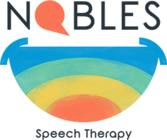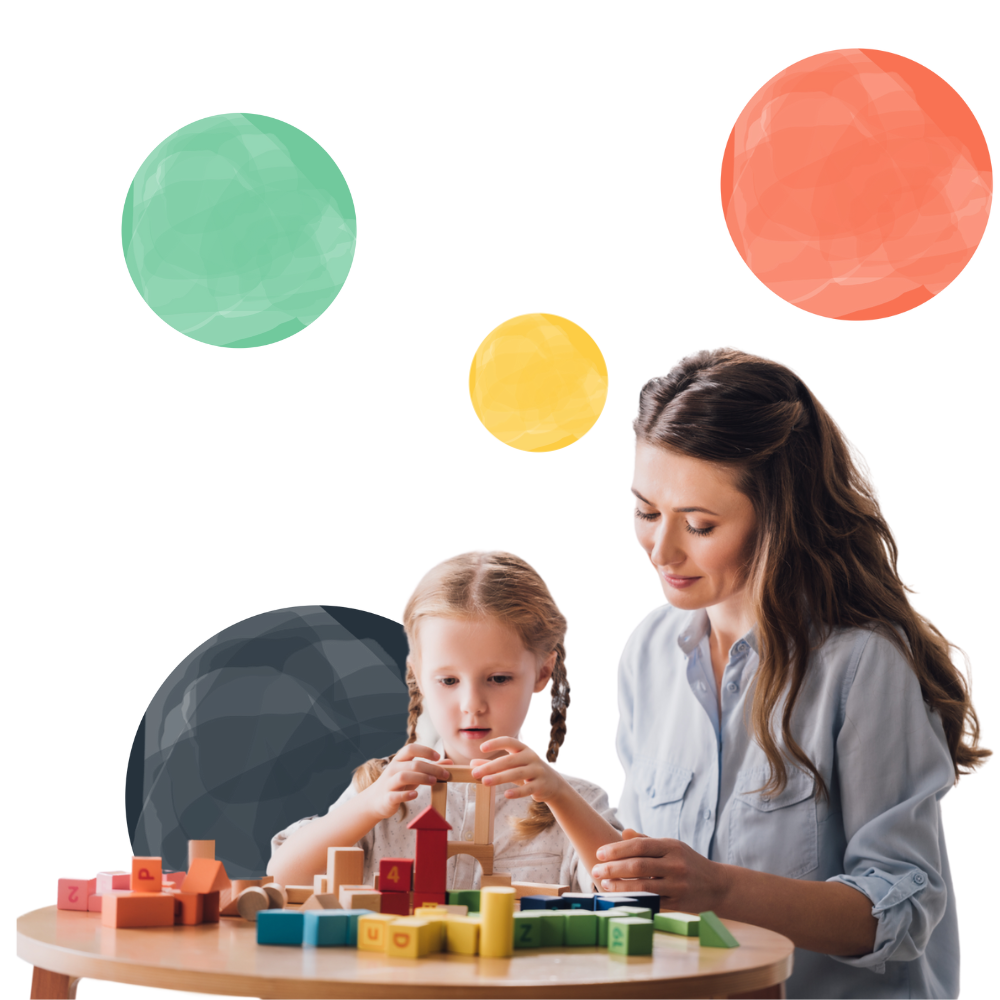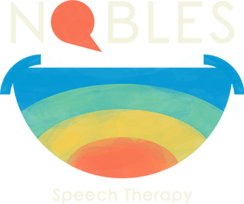If your child has autism, establishing meaningful relationships may be challenging. However, several practical strategies can bolster their social skills development. This article explores these techniques and highlights how
speech therapy for autism can significantly improve your child's social interactions and communication.
Understanding the Importance of Social Skills Development in Children with Autism
Developing social skills helps children connect with others and make friends, learn from others and experience new hobbies, and build stronger family relationships and a sense of belonging.
What are social skills?
The following social skills help children become more resilient and build meaningful relationships:
- Play skills such as learning to share or take turns
- Conversation skills, such as developing topics to start conversations
- Using and understanding proper body language when speaking to someone
- Emotional skills to manage their own emotions while also developing more empathy to understand the feelings of others
- Problem-solving skills related to social scenarios, such as conflict resolution or decision making
These skills help your child understand proper behavior in social settings to develop stronger relationships. As a result, they will have a better quality of life and enjoy improved mental health.
Common Social Challenges in Children with Autism
Although children with autism desire social interaction, they may struggle with social skills that allow them to do so successfully. Common social challenges faced by children with autism include:
- Initiating conversations and interactions
- Responding when others initiate interactions
- Maintaining eye contact
- Sharing enjoyment with others
- Reading and interpreting the non-verbal cues of others
- Considering the feelings and perspectives of others
Struggling with social skills can lead to anxiety, much like the feelings experienced when speaking in public. Symptoms of social anxiety might include:
- Increased heart rate
- Sweaty palms
- Shaking
- Difficulty concentrating
Using proven strategies, you can help your child develop social skills and overcome anxieties.
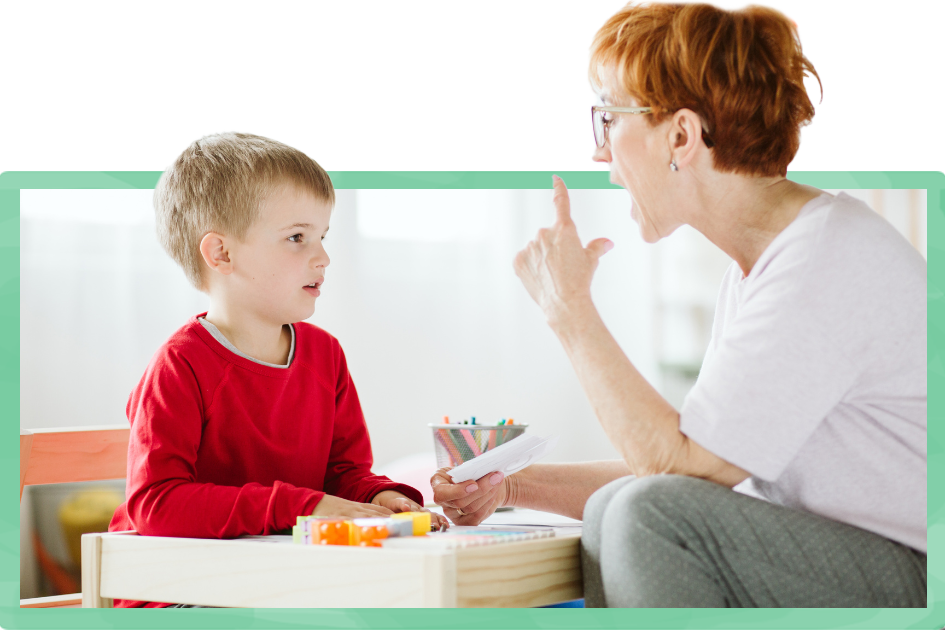
The Impact of Speech Therapy for Children with Autism
Speech therapy has a multitude of benefits for children with autism, and here are four specific ways it can make a difference:
Enhancing Communication Skills
Speech therapists use various techniques to help children with autism improve verbal and non-verbal communication skills, including clear speech sounds, body language, and understanding spoken and unspoken cues.
Improving Social Interactions
Speech therapists can help children with autism learn how to navigate social interactions, such as understanding conversational turn-taking, making appropriate eye contact, and understanding how to start, continue, and end a conversation.
Developing Emotional Understanding and Expression
Speech therapy can help children with autism learn to recognize, understand, and express emotions.
Promoting Play Skills Through Therapy
Speech therapists often use play-based techniques to make therapy fun and engaging for children, teaching them essential communication skills like taking turns and using language to express needs. Pretend play can also help children with autism develop imagination and symbolic thought, which are essential for language development.
With these in mind, let's delve into specific strategies to support social skills development in children with autism.
Strategies for Supporting Social Skills Development
Speech therapy for autism often focuses on play, which allows parents to teach essential social skills in a fun and engaging way at home. Praise and role-playing can help reinforce progress and practice initiating conversations.
Formal social skills training with a speech therapist provides robust strategies to enhance your child's skills. For example, a therapist can:
- Guide your child to improve communication skills through play using games, toys, and other activities
- Teach your child to understand and respond to conversations with others
- Help your child articulate their speech more clearly through focused therapy sessions
- Encourage your child to initiate and participate in conversations
- Train your child to understand non-verbal communication like body language and facial expressions
Private speech and language therapy for autism is crafted based on an assessment that highlights your child's strengths and helps them overcome weaknesses.
Creating Structured Social Opportunities
Social Skills Training (SST) provides structured social opportunities to help children learn how to make friends, interact with peers, control their emotions, understand others' feelings, and improve communication. These sessions can be accessed through pre-schools/schools and speech or occupational therapists.
Structured Play
Structured play allows autistic children to learn play and social skills using specific tools and activities. For example, through structured play, children learn to share, take turns, respond to other children, and try to understand how other children feel during play. Examples of structured play and social opportunities include:
- Exploratory Play: Instead of playing with toys, children explore objects through "feel," such as understanding the difference between liquid and bar soap or running sand through their fingers to learn about their environment.
- Cause and Effect Play: Children play with toys to understand how their actions create a result, such as pushing a button to hear music or rolling a ball back and forth with you to understand how to take turns.
- Toy Play: Playing with toys based on their intended use helps children develop problem-solving and creative skills.
- Constructive Play: This type of play teaches building skills using toys such as blocks and puzzles and creative skills through arts and crafts. Video modeling and visual supports can help your child understand constructive play's "how to" aspect.
- Physical Play: Active play helps your child develop gross motor skills. It is an excellent opportunity to exercise outside while exploring their environment and interacting with others.
- Pretend Play: Using the imagination develops language and communication skills through role-playing and pretending.
Utilizing Visual Supports and Social Stories
Visual supports such as pictures, prompt cards, or checklists can help your child remember the skills they have learned. For example, if your child is visiting a neighbor, you can use a picture of a dog to remind them to start a conversation about the neighbor's dog. Likewise, if your child often forgets to say thank you, you can post the word thank you in their room beside a picture of a family dining in a restaurant. Checklists keep them on track when socializing, such as listing:
- Make eye contact
- Approach the person
- Say hello
- Ask a question
- Listen and answer back
Social stories explain social scenarios and provide tips to deal with those scenarios. For example, a story might show a child how to start conversations using examples of the people your child might talk to, how to start a conversation, and ideas of what they might talk about.

Collaboration with Schools and Therapists
Collaboration provides a higher quality approach to social skills development for children with autism. In addition, using collaboration practices helps parents see more favorable outcomes, starting with early intervention in preschoolers. The collaboration includes early childhood educators, related service providers, speech and language therapists, and parents and caregivers.
Discover More About Speech Therapy for Autism
Want to dive deeper into how speech and language therapy can help your child grow their social skills and build stronger relationships?
Visit our comprehensive guide to learn more and explore the life-changing benefits of speech therapy for autism
Packed with knowledge and resources, it's designed to support you on this journey.

About the Author
Myles Nobles is a pediatric speech pathologist in Laurel, MD. With patience and a friendly demeanor, he helps children from all walks of life develop independence, greater confidence, and social well-being by improving speech and language. Treatment plans address developmental, articulation, fluency, and other crucial language skills impeded due to autism and other challenges.
You May Also Be Interested
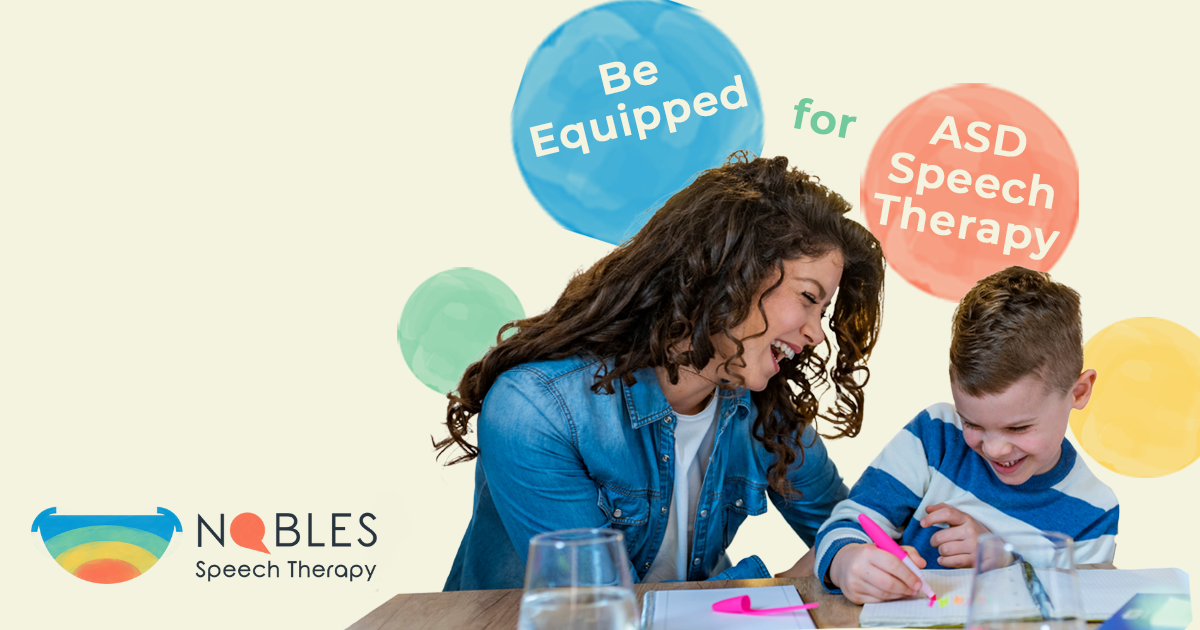
Contact
Nobles Speech Therapy LLC
info@noblesspeechtherapy.com

